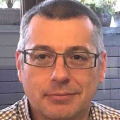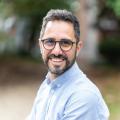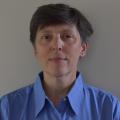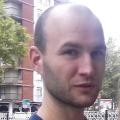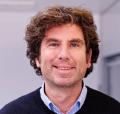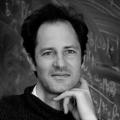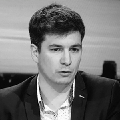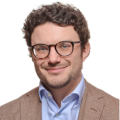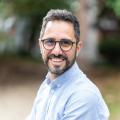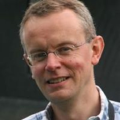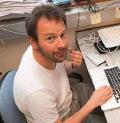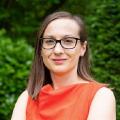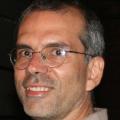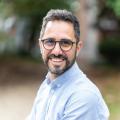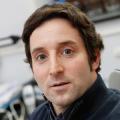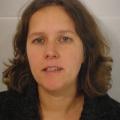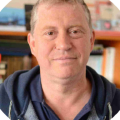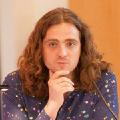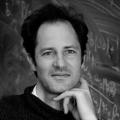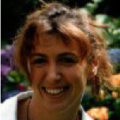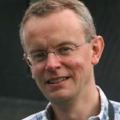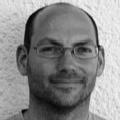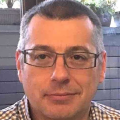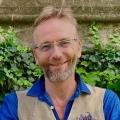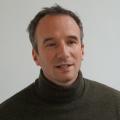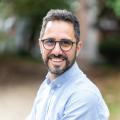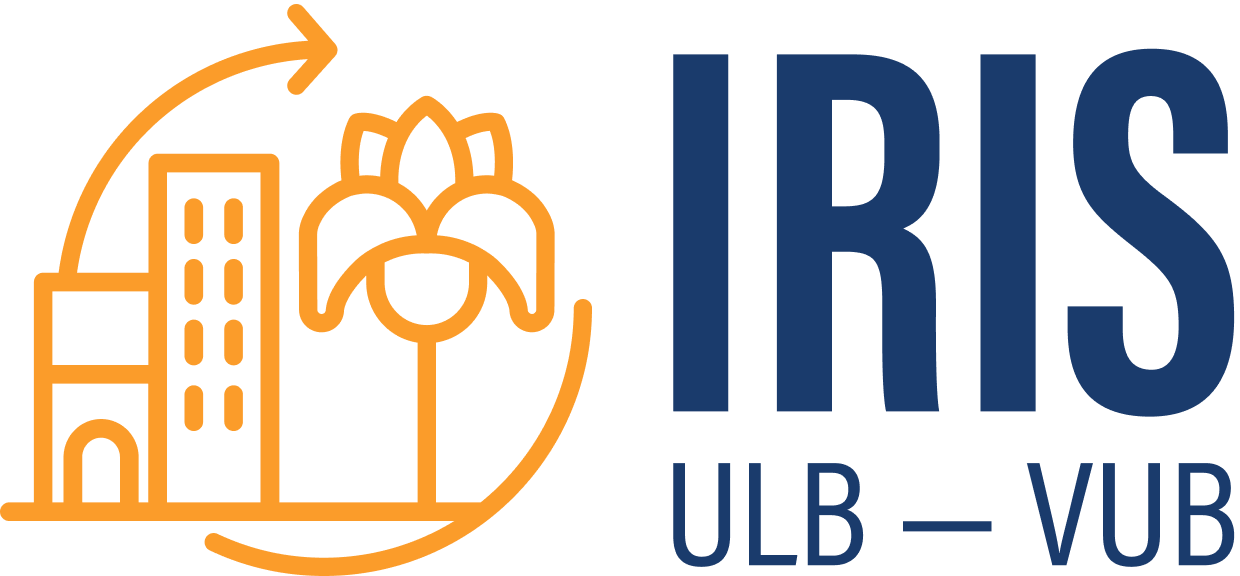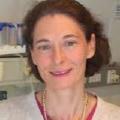In the same section
-
Share this page
Marie Skłodowska-Curie Actions
The Marie Skłodowska-Curie Actions (MSCA) programme's objective is to strengthen the human potential for research and technology in Europe, with a special attention is given to training researchers.

- Individual Fellowships
-
MSCA Postdoctoral Fellowships (formerly called Individual Fellowships) encourage young researchers to stay in Europe, and attract researchers from all around the world. They are awarded to researchers with a PhD who wish to add to their knowledge and skills or explore new areas. This enables researchers to broaden their training in a different EU country, or to spend two years training outside of Europe before returning for one year, or—for non-EU researchers—to be invited to Europe in order to share their knowledge.
The current ULB's "Marie-Curie" researchers are:Marine Thieux
Psychologie
Emotiv4climate: Impact of emotions on learning and memory-related brain processes across development: an application to climate-related educational issues (2025-2027)Olga Martzoukou
Sciences
PEROXISCENCE: Unraveling the peroxisome-associated mechanisms counteracting ferroptosis during quiescence (2025-2027)Olha Melnyk
Médecine
Beta_cell_protection: Uncovering Protective Mechanisms in Pancreatic β-Cells to Enhance Their Survival in Type 1 Diabetes (2025-2027)Barbora Svobodova
Lettres, Traduction et Communication
Lit-In-Soc: Literature - Industry - Society between Colonialism and Globalisation: The Role of Literature and the Corporate Press in the Global Activities of the Bata Concern (2025-2027)Nicolas Englebert
Sciences
SITES: Cavity solitons in time-multiplexed resonators (2024-2026)Jihan Safar
Lettres, Traduction et Communication
WOMLIT: Women and Arabic Literacy in Congo during the Colonial Period: A Double Invisibility (2024-2026)Laure Sizaire
Philosophie et sciences sociales
PriMCo: Privileged Mobility and Transnational Conjugality in Islamic countries: reconsidering global power relations from a gender perspective in Southeast Asia and West Africa (2024-2026)Pauline Maes
Lettres, Traduction et Communication
ECHAUTISM: On the nature of autistic echolalia (2024-2027)Alberto Rodriguez Vasquez
Sciences
HOLYFLOW: Holonomy, symmetry and geometric flows (2025-2026)Yifan Sun
Polytechnique
ENLIGHTENS: Dimensional into insight dissipative Kerr solitons (2024-2026)Georges Semaan
Polytechnique
TRESOR: Terahertz high resolution spectroscopy using driven optical resonators (2024-2026)Christoph Hertrich
Sciences
NeurExCo: Synergizing Neural Network Theory and Combinatorial Optimization via Extension Complexity (2024-2026)Alexandrine Liboz
Médecine
BECoop: Importance of human β and Endothelial cell Cooperation for the maturation, organisation and functionality of islet organoids (2024-2026)Luca Rossini
Polytechnique
PestFinder: Model-Based Estimation and Control of Agricultural Infestations Through Abiotic Changes (2023-2025)Vincent Pelgrims
Sciences
GADGET: Galactic magnetic field deflection of high energy astroparticles (2023-2025)Owen McNamara
Philosophie et sciences sociales
LLPQE: The Intimate Politics of Spanish Populists (2023-2025)Hadrien Bense
Sciences
TiMe: Exploring time-dependent memory effects in matter with viscoelastic snap-through of strips (2023-2025)Dorothée Neyme
Philosophie et sciences sociales
STUCCO: Stuccoes from the Roman necropolises of Pozzuoli (1st-3rd century CE, Campania, Italy) (2022-2024)Torres Huerta Aaron
Ecole Polytechnique de Bruxelles
LipoNanoReactors: Liposomes as nanoreactors for the bottom-up assembly of supramolecular structures in confined space (2022-2024)Benjamin Vis
Architecture
REMIND: Reimagining Urban Growth in the Mérida Region through Long-Term Adaptive Indigenous Practices: An applied archaeology for sustainable urban development (2022-2025)Sofia Fernandez Guerrico
Solvay Brussels School of Economics and Management
BIMH: The Effects of Broadband Internet on Mental Health Note that for technical reasons, the following characters (2021-2023)Piotr Godzisz
Philosophie et Sciences sociales
ENTER: Diffusion of laws addressing anti-LGBT violence to South East European countries (2021-2023)Emmanuel Siefert
Sciences
BioCaptSoft: Bio-inspired capillary capture of viscous fluids with soft structures (2021-2023)
Xu Wen
Ecole Polytechnique de Bruxelles
Green-Combustion: Addressing challenging issues for turbulent premixed hydrogen combustion modeling using novel technologies (2021-2023)Francesco De Lucia
École polytechnique de Bruxelles
PocketLight: Des résonateurs optiques compacts (2020-2021)
Michael Allwright
École polytechnique de Bruxelles
SRoCS: Swarm Robotics Construction System (2019-2021)
Joe Burton
Philosophie et Sciences sociales
CYBERCULT: Cultures Stratégiques de la Cyberguerre (2019-2021)Xavier Bisteau
Médecine
Kinaddict: Vulnérabilité des cancers œsophagiens à leur addiction aux activités de kinases (2019-2021)Nerantzis Nerantzis
Philosophie et Sciences sociales
ME.Tech.NAS : Metals Technology in North Aegean Societies (2019-2021)Azzura Tafuro
Philosophie et Sciences sociales
GENI : Genre, émotions et identité nationale : nouvelles perspectives sur le débat autour de l’avortement en Italie (1971-1981) (2019-2021)Agnès Chetaille
Philosophie et Sciences sociales & STRIGES, MSH
MIGREMOV: Movements, Migration and Emotion: East/West Mobility, Transnational Bonding, and Political Identities in Polish Activists' Biographies (2018-2021)Charlotte Sleight
Sciences
InflaBoot: Bootstrapping Inflationary Cosmology (2018-2020)Guangfeng Liu
Sciences
PARADA: Parallel Donor and Acceptor Semiconductor Crystals for Organic Field Effect Transistors (2018-2020)Amandine Van Rinsveld
Psychologie des sciences de l'éducation et de logopédie
Freq4Num: The neural signature of numerosity: Tracking the cerebral correlates of numerical and continuous magnitude extraction with a frequency-based approach (2018-2020)Massimo Taronna
Sciences
TcCFT: Tools to Carve out Conformal Field Theories (2017-2019)Mathieu Bourguignon
Psychologie, des sciences de l'éducation et de logopédie
DYSTRACK: Brain-speech tracking in noisy conditions: towards the identification and remediation of dyslexia (2017-2019)Eduardo Castello
École polytechnique de Bruxelles
BROS: Blockchain: a new framework for swarm RObotic Systems (2017-2020)Deborah Gatti
Pharmacie
GD TCR Ligand: Identification of the ligand of a human public anti-HCMV/cancer γδ T cell receptor (2017-2019)Ov Cristian Norocel
Philosophie et Sciences sociales
INWELCHAV: Intersectional Analyses of Welfare Chauvinism in Europe (2017-2019) - Doctoral Networks
-
The MSCA programme also funds the creation of networks dedicated to training young researchers (Doctoral networks, formerly called Innovative Training Networks).
ULB is in charge of coordinating the europeans networks:MAGNIFY: Advancing Energy Conversion Technologies: High-Frequency Magnetics in Modern Power Electronics (2025-2029)
Johan Gyselinck
Polytechnique
AbstractDT-HATS: Digital-Twins for Hydrogen and Ammonia injection and ignition in engines for Transport Systems (2025-2029)
Alessandro Parente
Polytechnique
Abstract
WATER: Doctoral Network on Interfacial Water in Membrane Transport (2025-2029)
Christine Delporte
Médecine
AbstractHUM.AI.N-ACCENT: Bridging Communication Gaps in Human and Human-AI Interactions: The Role of Accented Speech on Neurocognitive mechanisms and Social Dynamics (2025-2029)
Mathieu Bourguignon
Sciences de la motricité
AbstractLeidenForce: Advanced Leidenfrost Effect (2025-2029)
Benoit Scheid
Polytechnique
AbstractAdaptmet: Deconstructing adaptive evolution of metastasis (2025-2029)
Cédric Blanpain
Médecine
AbstractPOSTDIGITAL Plus: European Training Network on Post-Digital Computing + (POSTDIGITAL+) (2025-2029)
Serge Massar
Sciences
AbstractVIVACE: Management of avian influenza in a vaccination context (2024-2028)
Simon Dellicour
Sciences
AbstractFairomics: FAIRification of multiOmics data to link databases and create knowledge graphs for fermented foods (2024-2028)
Julien Cabay
Droit et de Criminologie
AbstractENCODING: ENabling sustainable COmbustion technologies using hybrid physics-based Data-driven modelING (2023-2027, coordinateur)
Alessandro Parente
Polytechnique
AbstractCISSE: Chiral-Induced Spin Selectivity Effect (2023-2027, coordinateur)
Yves Geerts
Polytechnique
Abstract
VORTEX: Coping with Varieties of Radicalization into Terrorism and Extremism (2023-2027)
Corinne Torrekens
Philosophie et Sciences sociales
AbstractU-CORP-TAX (2023, coordinateur)
Mathieu Parenti
Solvay Brussels School - E.M.
AbstractUSES2: USES of novel Ultrasonic and Seismic Embedded Sensors for the non-destructive evaluation and structural health monitoring of critical infrastructure and human-built objects (2023-2027)
Arnaud Deraemaeker
Polytechnique
AbstractNERVSPAN: Molecular Dynamic of Neurons during C. elegans Lifespan (2023-2027)
Patrick Laurent
Médecine
Abstract
GEM-DIAMOND: Globalisation, Europe and Multilateralism : Democratic Institutions, the rise of Alternative MOdels and mounting Normative Dissensus (2022-2026, coordinateur)
Ramona Coman
Philosophie et Sciences sociales
Abstract
Evomet: Deconstructing the evolution of metastasis (2021-2025)
Cédric Blanpain
Médecine
AbstractDEEPICE: Research and training network on understanding Deep icE corE Proxies to Infer past antarctiC climatE dynamics (2021-2025)
François Fripiat
Sciences
AbstractDEDS: Data Engineering for Data Science (2021-2025, coordinateur)
Esteban Zimanyi
Polytechnique
AbstractAppQInfo: Applications and Hardware for Photonic Quantum Information Processing (2021-2025)
Nicolas Cerf
Polytechnique
AbstractCoPerMix: Control Prediction and LeaRning in Mixing processes (2021-2025)
Anne De Wit
Sciences
AbstractMODELAIR: Groundbreaking tools and models to reduce air pollution in urban areas (2020-2024)
Alessandro Parente
Polytechnique
AbstractROPES: ROles of ePitranscriptomic in diseasES (2020-2025)
François Fuks
Médecine
AbstractComm4CHILD: Communication for Children with Hearing Impairment to optimise Language Development (2020-2024, coordinateur)
Cécile Colin
Psychologie, Sciences de l’Education et Logopédie
Abstract
ASCenSIon: Advancing Space Access Capabilities - Reusability and Multiple Satellite Injection (2020-2024)
Patrick Hendrick
Polytechnique
AbstractINIA: Intersex- New Interdisciplinary Approaches (2020-2024)
David Paternotte
Philosophie et Sciences sociales
AbstractPOST-DIGITAL: European Training Network on Post-Digital Computing (2020-2024)
Serge Massar
Sciences
AbstractBactivax: anti-Bacterial Innovative Vaccine Training Network (2019-2024)
Fabienne Andris
Sciences
AbstractUHMob: Ultra-high Charge Carrier Mobility to Elucidate Transport Mechanisms in Molecular Semiconductors (2019-2023, coordinateur)
Yves Geerts
Sciences
Abstract
IGNITE: Comparative genomics of non-model invertebrates (2018-2022)
Jean-François Flot
Sciences
AbstractProTechTion: Industrial decision-making on complex production technologies supported by simulation-based
engineering (2018-2022)
Thierry Jacques Massart
Polytechnique
Abstract
ABC-EU-XVA: Valuation Adjustments for Improved Risk Management (2018-2022)
Griselda Deelstra
Sciences
AbstractMixITiN: Bringing the paradigm for marine pelagic production into the 21st century: incorporating
mixotrophy into mainstream marine research (2017-2021)
Nathalie Gypens
Sciences
Abstract
INTERACT: European Industrial Doctorate on Next Generation for sustaINable auTomotive ElectRical
ACtuaTion (2017-2022)
Johan Gyselinck
Polytechnique
AbstractGEM-STONES: Globalisation, Europe and Multilateralism - Sophistication of the Transnational Order, Networks and European Strategies (2016-2020, coordinateur)
Anne Weyembergh
Droit et Criminologie
Abstract
C-CASCADES: Carbon Cascades from Land to Ocean in the Anthropocene (2015-2018, coordinateur)
Pierre Regnier
Sciences
Abstract
BtRAIN: Brain barriers training (2015-2019)
Benoit Vanhollebeke
Sciences
Abstract
CLEAN-Gas: Combustion for Low Emission Applications of Natural Gas (2015-2018)
Alessandro Parente
Polytechnique
Abstract - COFUND
-
IF@ULB: Individual fellowships at ULB (coordinator, 2018-2024). This project has made it possible to recruit 63 postdoctoral researchers to ULB for international mobility. Winners of an IF@ULB fellowship
CIVIS3i: The CIVIS Alliance Programme for International, Interdisciplinary, Intersectoral Research and Training for Experienced Researchers (partner, 2021-2025)
IRIS : Interdisciplinary Research in Societal challenges (coordinator with VUB, 2025-2030). This project will make possible to recruit 36 postdoctoral researchers to ULB for international mobility.
- Staff Exchanges
-
MSCA Staff Exchanges (formerly RISE) promote international, cross-sectoral and interdisciplinary collaboration in research and innovation through the exchange of staff and the sharing of knowledge and ideas at all stages of the innovation chain. The programme fosters a shared research and innovation culture that welcomes and rewards creativity and entrepreneurship, and helps turn ideas into innovative products, services or processes.
ULB participates in the following staff exchanges:
EDGES: Entangling Indigenous Knowledges in Universities (2024-2027)
Barbara Truffin
Droit
AbstractLABOUR: Tacking informal employment in Asia: building post-COV19 solutions to precariousness through casestudy based evidence on Bhutan, Laos, Maldives, Myanmar, Philippines, Thailand and Vietnam (2022-2026)
Pierre Petit
Philosophie et Sciences sociales
AbstractCoclican: COllaborative Consortium for the early detection of LIver CANcer (2018-2022)
Olivier Debeir
Polytechnique
Abstract
CONNECT: Combinatorics of Networks and Computation (2017-2022)
Jean Cardinal
Sciences
AbstractEU4HIVCure: Accelerating HIV Cure in Europe (2016-2020)
Carine Van Lint
Sciences
Abstract - Citizens
-
The aim of the MSCA Citizens action (formerly NIGHT) is to bring research and researchers closer to the general public, with particular emphasis on families, pupils and students. To this end, it organises the European Researchers' Night, a communication and research promotion event that takes place in EU Member States and countries associated with Horizon Europe.
ULB took part in the following citizen actions:SCI-TREK: Science journey in a world in transition(s) (2020-2021)
Jérôme De Schauwers
Sciences
Abstract
Previous projects financed :
LONGBET (2013), Science at home (2012), BIORES (2010), BRAZIL (2009), BRIGHT NIGHT 3 (2008), BRIGHT NIGHT 2 (2007)
-
If you are a researcher and would like to conduct research at ULB with MSCA funds, please contact the "Europe research unit" of the Research Department:
ulb-europe@ulb.be


